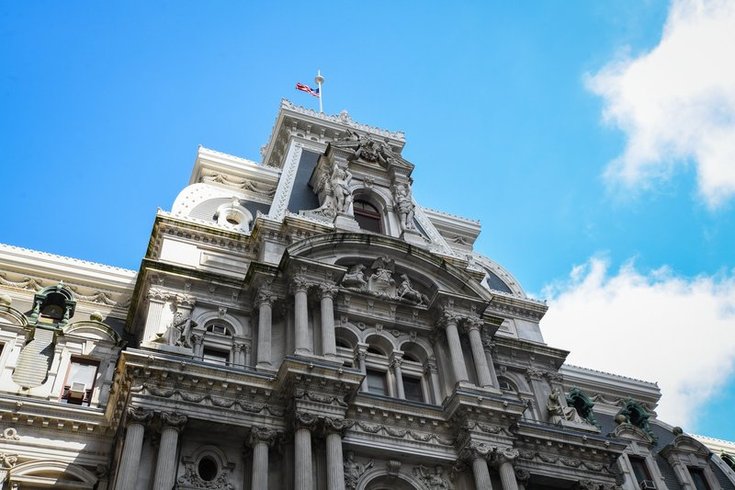
July 11, 2024
 Thom Carroll/For PhillyVoice
Thom Carroll/For PhillyVoice
Mayor Cherelle Parker's return-to-office mandate takes effect Monday, pending a judge's decision on the AFSCME District Council 47 lawsuit that claims Parker's plan violates the union's contract.
After a day in court on Thursday, there continues to be no ruling on the union lawsuit seeking to stop Mayor Cherelle Parker's policy, requiring all Philadelphia municipal employees to work five days a week in their offices.
Currently, city employees have been told that starting Monday they are required to report to work in person. About 80% of the city's 26,000 employees worked on-site five days a week in 2023, the Parker administration says. The other 20% worked between 31 and 75 hours in person per two-week pay period.
Lawyers for the city and American Federation of State, County and Municipal Employees District Council 47 were in Common Pleas Court on Thursday, arguing their cases. The union, which represents Philadelphia's white-collar employees seeks an emergency injunction to stop Parker's policy from taking effect.
Some union members testified at the hearing that their hybrid schedules made it possible for them to provide care for their children or elderly family members. Others said the working remotely accommodated their own care for diseases and chronic conditions, like cancer, serious arthritis and back pain.
Two union workers described how their offices' bright lights caused migraines and sensory issues. They said they covered their desks with an umbrella and a sheet to shade themselves.
More witnesses are scheduled to testify Friday before a ruling is made by Common Pleas Judge Sierra Thomas-Street.
But despite seemingly making a play for the judge's sympathy in the courtroom, the District Council 47's argument hinges on a technical and legal question of whether Parker's return-to-office policy violates the union's contract with the city.
AFSCME leaders and their lawyers claim the city did not bargain in good faith about the return to work policy and that the mandates violates the contract's alternative work section.
The city countered that it doesn't have to negotiate with the union on this matter. When the city first expanded its virtual work policy for employees in March 2020, it spoke with the union in a non-collective bargaining capacity. The city's lawyers contend that mean the city can decide where employees work without their approval.
"Return to work policy is a change in work location, not in work scheduling, and the city has a right to change work location," Assistant City Solicitor Megan Malone said.
David Wilson, an executive board member of AFSCME District Council 47 and president Local 2187, said the remote work policy was negotiated and updated during the height of COVID-19, the George Floyd protests in June 2020 and the flooding of Interstate 676 caused by the remnants of Hurricane Ida in 2021 — each an event that required employees work from home. Wilson believes those terms were bargained, and the city never took the position that alternative work schedules section of the union's contract didn't include remote work until 2024.
"The mayor's Officer of Labor Relations at the time, those officials were in those meetings," Wilson said. "The discussions we had, there was no correction, to my belief, that it was bargaining."
Parker on Wednesday said bringing employees back to the office full-time will stimulate Center City's economy and provide a "tangible" workforce. Employees say it will result in existing workers quitting their jobs, and it will make city jobs less appealing to prospective applicants.
Sara Gendel, an environmental scientist supervisor at the Philadelphia Water Department testified during the hearing and described how since being hit by an SUV in 2017 she has undergone eight surgeries and continues to live with neck pain, migraines and panic attacks.
She filed for an Americans with Disabilities Act accommodation in May to continue working from home. "For my own mental health, I need to have an option to be remote," Gendel said.
April Gigetts, president of District Council 47, said 300 workers showed up to a town hall hosted by the union about the return-to-work policy.
"(The impact) is just huge, I’ve never seen engagement like this in my entire career with the union," Gigetts said. "This has shaken me to my core.”
If Parker's return-to-office policy stays in effect, some employees said they've applied for family and medical leave or ADA accommodations — though that process can be slow. Some have said they plan to use paid time off and sick days until they can work out a solution for themselves and their families.
Gigetts said that workers would have to show up on Monday, but the union applied for expedited arbitration to try to get an official bargaining session about this matter as soon as possible.
"The struggle continues, the fight continues," Gigetts said.